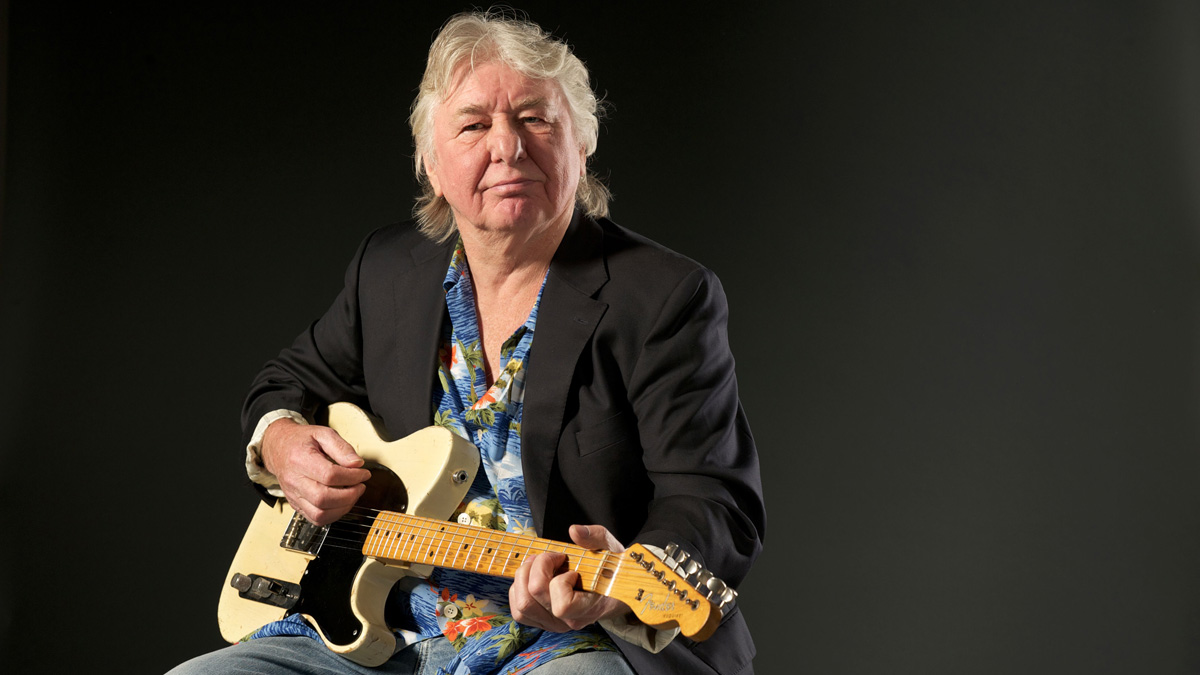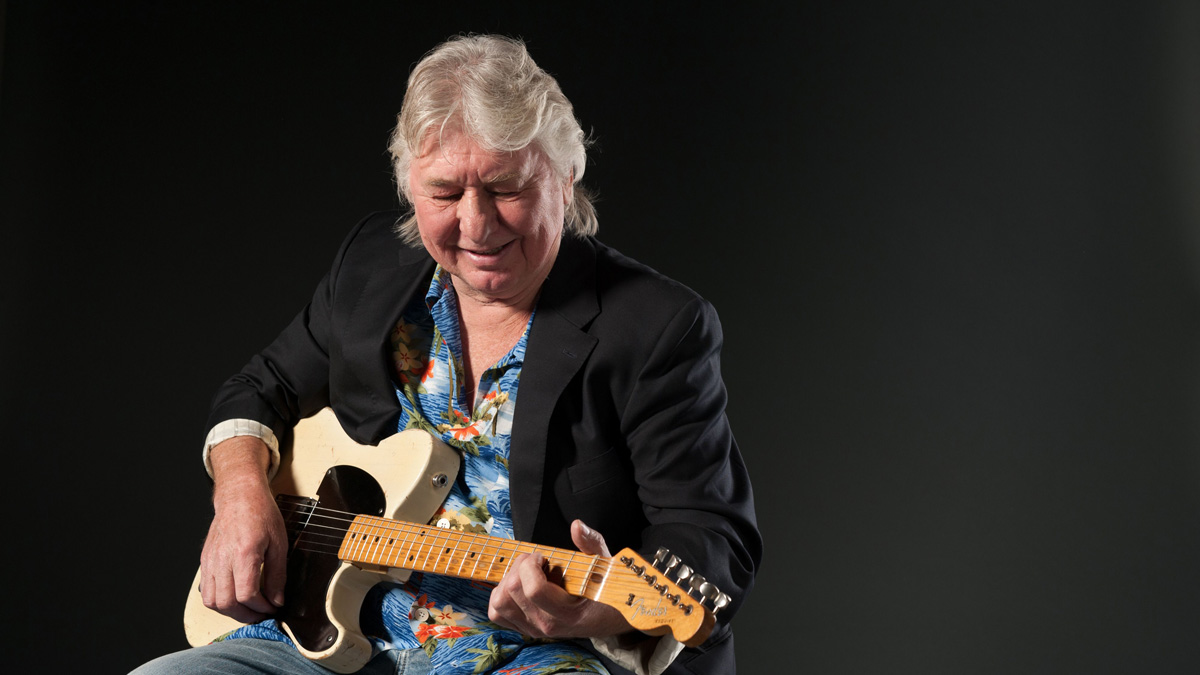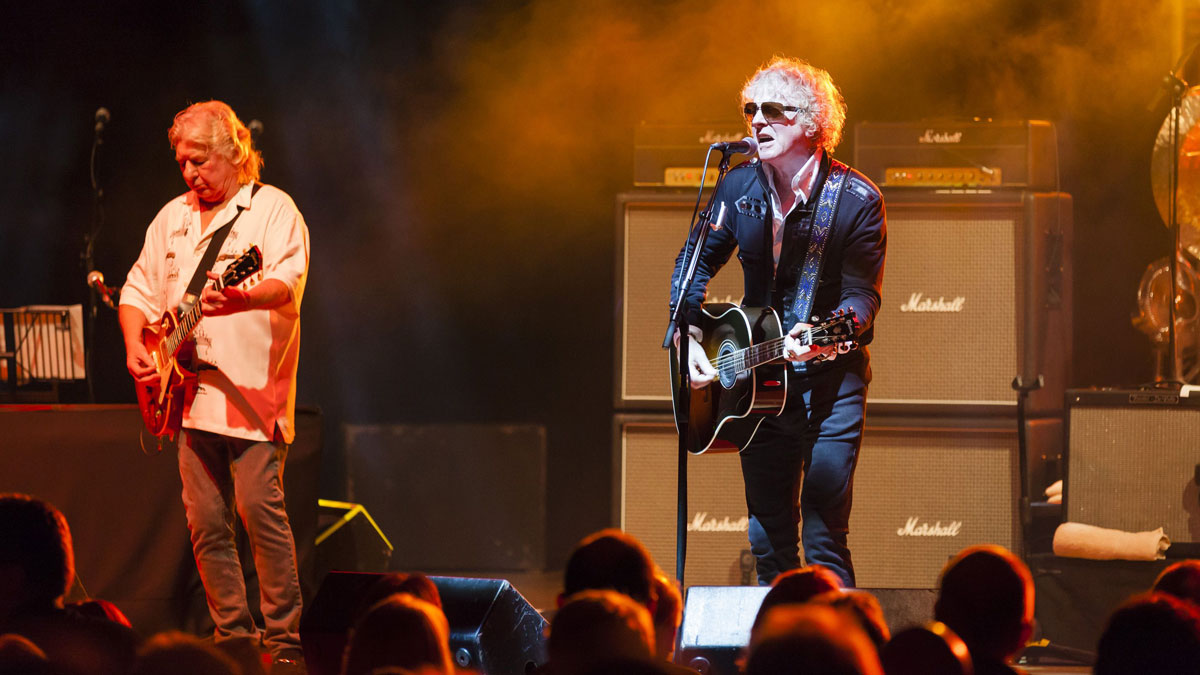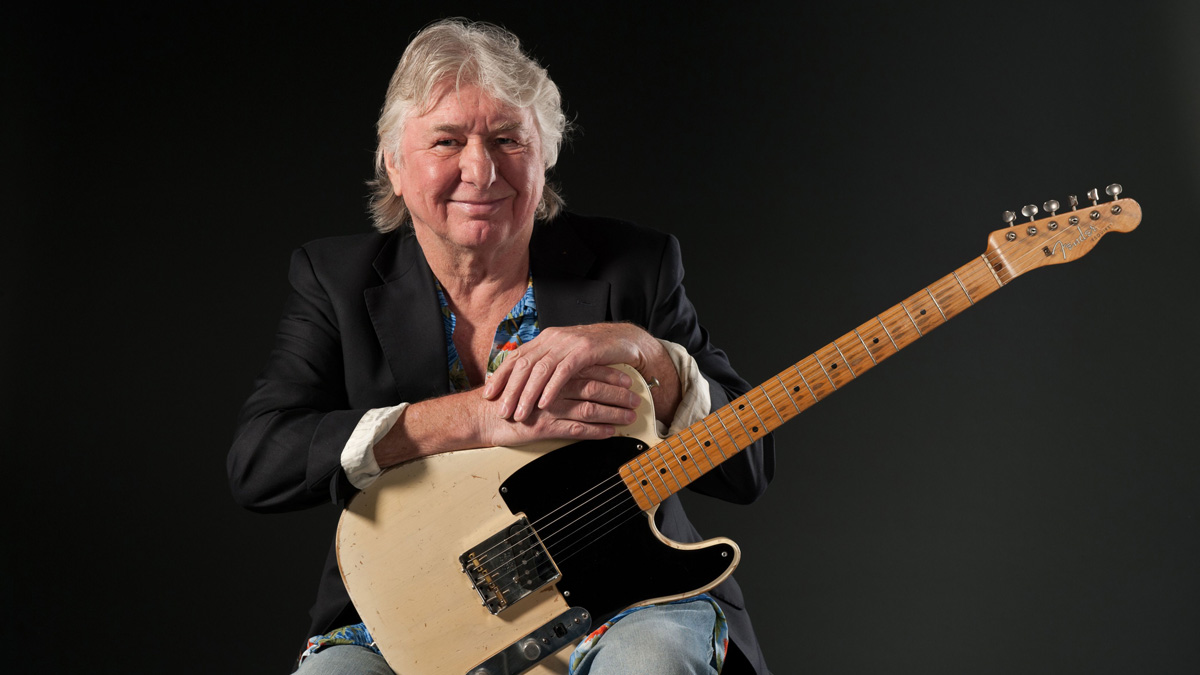Mick Ralphs's top 5 tips for guitarists
Bad Company man talks gear, recording and more

Back on the road
When MusicRadar speaks to Mick Ralphs, the veteran guitarist is preparing to re-join his Bad Company bandmates for their first UK tour in six years.
Ralphs sat out the band’s US summer run, with the UK-based 72-year-old citing the rigours of long transatlantic touring as the reason behind the decision.
But, he is raring to go as Bad Co prepare to hit the UK’s arenas this month.
“It’s heartwarming that we’re playing in arenas again,” Mott The Hoople founder Ralphs says. “When we started off all those years ago, we never thought all this time later we’d still be playing these songs. I have to say, though, I did listen to some of the old stuff yesterday in the car and it sounded remarkably fresh. It doesn’t sound dated at all.
These songs never feel stale; they always feel vibrant and relevant and we play them with the same passion and energy
“That’s amazing really because these songs are from 30 or 40 years ago. It’s nice to sit back and listen to the old material ahead of the tour, because once an album is done I don’t really ever listen to it. I just hear them on the radio every now and then and think, ‘Oh, that sounds quite good.’
"These songs never feel stale; they always feel vibrant and relevant, and we play them with the same passion and energy. We’re not churning it out; we go through the whole performance as if it’s all new because it is all exciting to us.
It may be 20 years since Bad Company’s last studio album, but Ralphs reveals that he would be open to working on new material as well as playing more shows after the UK dates.
“I’d like to think we’ll do more [shows] after this tour,” he says. “Maybe we’ll sit down and discuss what to do next year. I’m still writing songs - I try out new songs with my blues band. It would be nice to talk to Paul and Simon about it all, and I’d like to do more.”
As a man with almost 50 years of experience at the top under his belt, Ralphs has plenty of wisdom to share, so that’s exactly what we asked him to do. Here, we present Mick Ralphs’ top five tips for guitarists.
Don't Miss

1. Get a decent amp
"What I have learned over the years is that the most important link in the chain of your sound is the amp. But when you’re young all that you think about is which guitar you want because they look so cool.
"A lot of people have a Les Paul or a Strat or whatever and want to sound like their favourite guitarist, but the amp is so important. The amp is the ugly duckling.
You can put a not very good guitar through a good amp and it’ll sound great. But if you put a great guitar through a crappy amp it will sound crappy
"Most people don’t ogle over amps but I have found in my experience that if you get an amp that sounds good it will make you play better.
"You can put a not very good guitar through a good amp and it’ll sound great. But if you put a great guitar through a crappy amp it will sound crappy. When you start off playing, you doodle pictures of Fenders but the amp is a secondary thought. You should research the kind of amp that you need for whatever you’re doing and make sure you find that one that is right for you."

2. Experiment with tunings
"As a writer, you need to play for the song and what suits the song rather than thinking, ‘Oh, it’s lead guitar time coming up.’
"I always think about what the songs need, and in the case of Can’t Get Enough it wasn’t written in Open C; it was written in Open G. When I started working on it with Paul [Rodgers], he asked if I could change the key to suit his voice.
"We tried different keys and ended up with C. I thought, ‘How the hell do you have a guitar tuned to C?’ I put lighter gauge strings on it and tuned it up to a chord. That came about by accident because I had done a demo for it in G years before I met Paul when I was in Mott The Hoople.
"I liked open tunings - Joni Mitchell was the ace for open tuning. You can tune the guitar to anything that you want as long as it sounds all right. I’ve worked with David Gilmour as well, who of course works with different tunings. It’s very important to be creative with your tuning."

3. Collaborate with friends
"I have been fortunate to work with some fantastic people. A lot of that is by chance. Paul and I happened to tour together while I was in Mott The Hoople and we became friends and that was the basis for Bad Company.
"It wasn’t planned - we just happened to get along and he liked some of the songs I had written. He’s a great singer, though, and can make anything sound good.
"David Gilmour was a neighbour of mine and that’s how we started working together. It almost always started with a friendship."

4. Choose the right bandmates
"You have to be open and flexible to the people you’re working with and the other people in your band.
"I’ve done a couple of rock 'n' roll fantasy camps. You get given five or six people and you have to turn them into a group within a week. It’s so important to be aware of what people can and can’t do. That way, you end up with a whole that is better than the sum of the parts.
When we put Bad Company together, it was all about the chemistry we had as people as much as our ability
"That’s true of any band. So many big bands have had people go off and do solo albums, and so often it never sounds as good as the group that they’ve come from.
"When we put Bad Company together, it was all about the chemistry we had as people as much as our ability. It took us ages to find the right bass player for Bad Company, and we tried a lot of really good bass players out, but for some reason Boz [Burrell]’s personality really clicked with us.
"It’s so important to get along with people in your band and have the same sense of humour, then the music comes naturally. I’ve seen so many bands that were put together on paper because of their names and they haven’t worked. It’s a misconception that putting so and so with so and so is guaranteed to be great. It has to work on a personal level as well as a technical level."

5. Don't be overawed in the studio
"You can’t get intimidated when you’re recording. When I first went into the studio, I was a bit overwhelmed with all of that gear and everything else in there.
"If you’re going in as a band, you have to just be as you are as a band and be natural. All of that equipment is there to make you sound good, and there are engineers on tap to press the buttons, so all you need to do is to play. You just have to relax and be yourself.
"The first Bad Company album was done in two weeks - you just need to get in and play. We did that album in a mobile studio. That helped, because we were in this empty house with the equipment in a trailer so we didn’t have the hassle of driving into the studio; we were on location.
"It was a very creative environment, and we did the first three albums like that. We were living together there and we got a lot done because we weren’t going home; we were chatting things out."
Bad Company's UK tour kicks off in Leeds on 15 October. Visit www.badcompany.com for more details.
Don't Miss
MusicRadar is the number one website for music-makers of all kinds, be they guitarists, drummers, keyboard players, DJs or producers...
- GEAR: We help musicians find the best gear with top-ranking gear round-ups and high-quality, authoritative reviews by a wide team of highly experienced experts.
- TIPS: We also provide tuition, from bite-sized tips to advanced work-outs and guidance from recognised musicians and stars.
- STARS: We talk to musicians and stars about their creative processes, and the nuts and bolts of their gear and technique. We give fans an insight into the craft of music-making that no other music website can.
